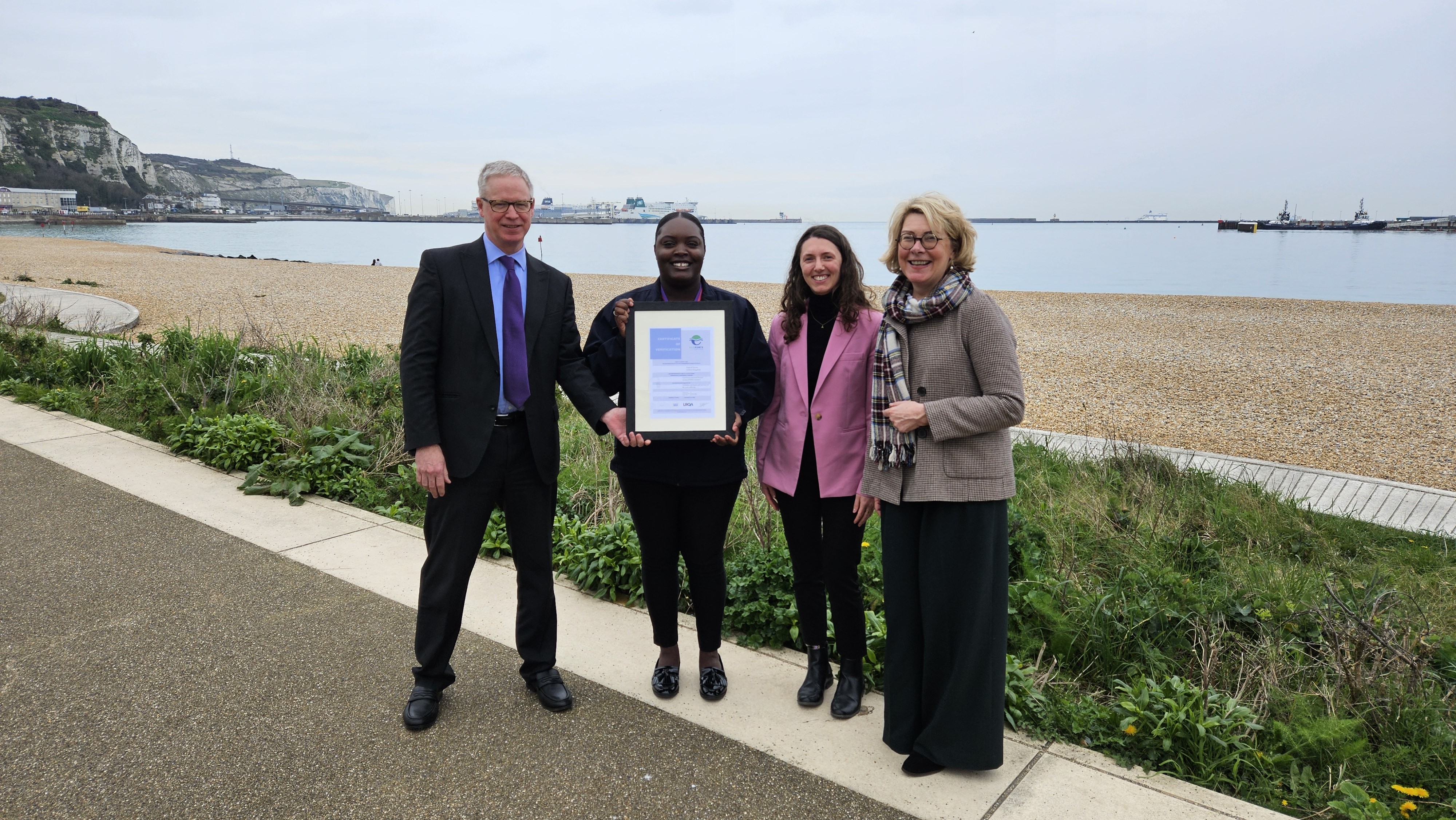EcoPorts News
Third PERS Certification for our long-standing EcoPorts member the Port of Dover
ESPO congratulates the Port of Dover (United Kingdom) for being certified through the EcoPorts’ environmental management standard (PERS). Port of Dover is a long-standing EcoPorts member, being in the Network since 2003 and is now certified for the third time under the PERS.

Doug Bannister, CEO Port of Dover and Lanisha Joseph, Environment Advisor Port of Dover, with Anaëlle Boudry and Isabelle Ryckbost from ESPO.
Isabelle Ryckbost, ESPO Secretary General, commented: “The investments and work of the Port of Dover in the field of clean energies both for shipping and port operations, biodiversity, and monitoring pollution are truly impressive. We are happy to see the Port of Dover being PERS certified for the third time. It is certainly a well-deserved certificate for the team in the Port of Dover who is full of green engagement”.
“I am very happy with the commitment and dedication shown by the Port of Dover when it comes to environmental management and involvement in the EcoPorts community. Its continuous engagement with environmental issues is coupled by a willingness to identify and address new issues when they arise. The PERS certification is evidence of their ambition to tackle many challenges arising in and around the port. I congratulate the port once more and I look forward to having them as key members of our EcoPorts Network for many more years to come” commented Anaëlle Boudry, ESPO Senior Policy Advisor and EcoPorts Coordinator.
PERS (Port Environmental Review System) is the only port-specific environmental standard. The last five years have seen important increases in its recognition and membership, with 91 ports from 27 countries currently counting themselves as part of the EcoPorts Network, and 35 ports holding PERS certification. Compliance with the EcoPorts’ PERS standard is independently assessed by LRQA Nederland B.V. and the certificate has a validity of two years. EcoPorts’ PERS is revised after the 2-year period to make sure that the port continues to meet the requirements.

